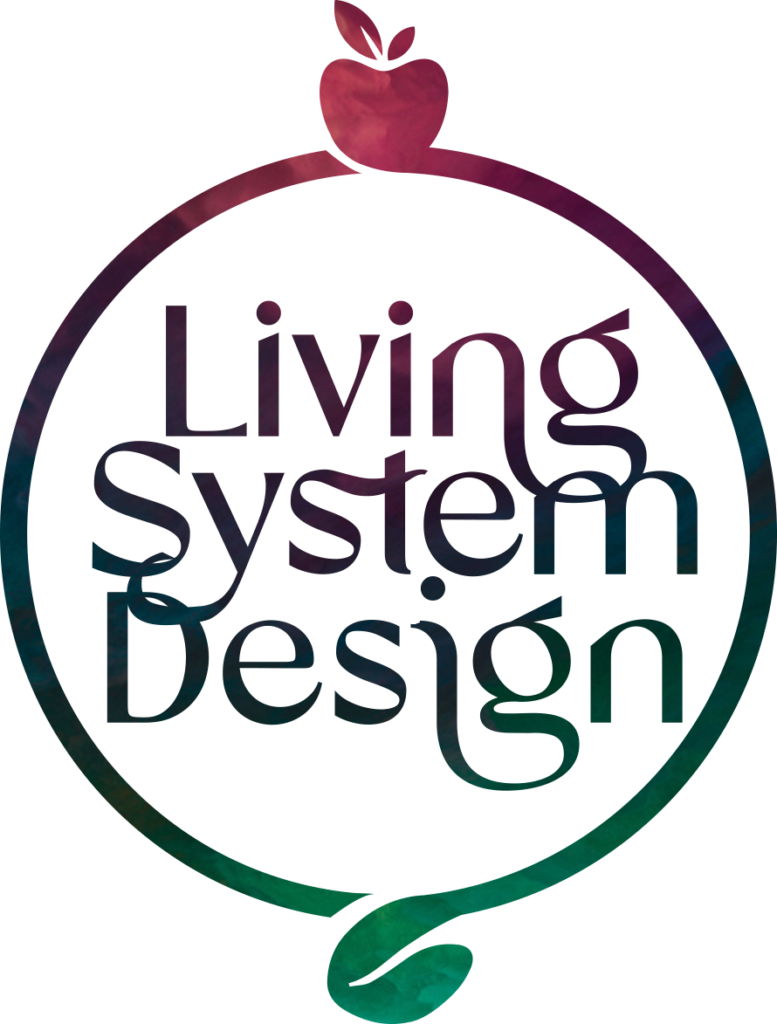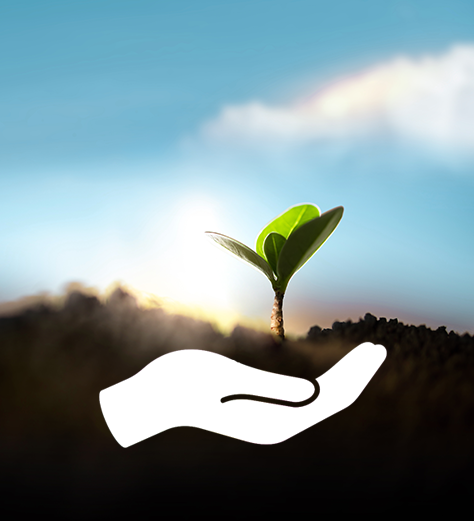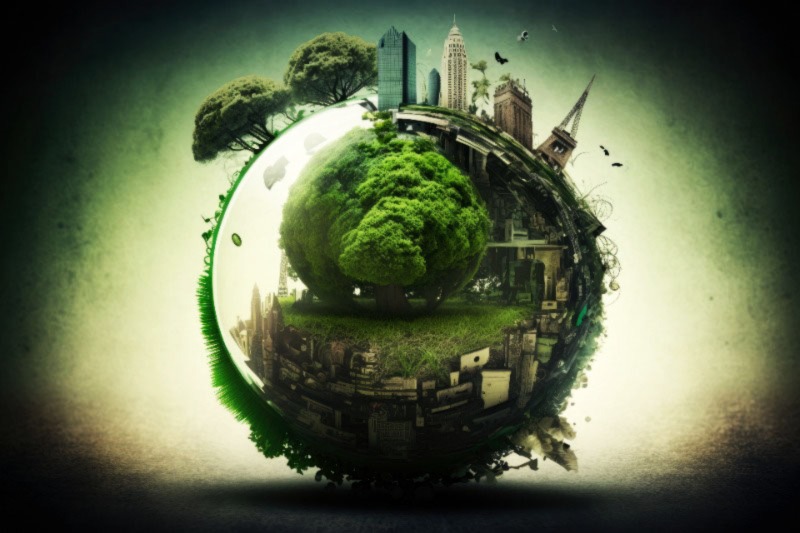
Contributionism
How would an economic system rooted in human contribution operate?
What if we placed People and Planet before Profit?
Let’s talk about the Economy…
Our current economic system is described by what we call Capitalism. But what does that word Economy even mean? I found it best articulated in this short video How We Live. In short breaking down the word Economy into Eco, meaning home and Nomy meaning management, it is the management of our home, our home being the planet. The video breaks it down into three pillars, human labor, resources and culture. This is currently expressed through a culture of corporate Capitialism. It is rooted in the extraction of human labor and resources in service to corporate profits. Is this the culture we really want to create, yes, we created it, but did we choose it?
Profit before People and Planet
In an earlier blog about the Meta Crisis I unpacked how our assumptions create emergent behaviors aligned with those assumptions. Our modern technology allows them to expand and propagate faster and faster, AI being the latest!
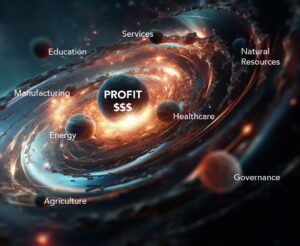 As Einstein said:
As Einstein said:
“no problem can be solved by the same level of thinking that created it.”
How much of our social problems stem from technology? What if our view of the economy is built on assumptions equivalent of the Geocentric model of the universe? In that model the Earth was the center of the universe, it was the predominant worldview of the time. In our current economic model, profit is the center of the universe.
Related Posts
Living System Design
The Real Meta Crisis
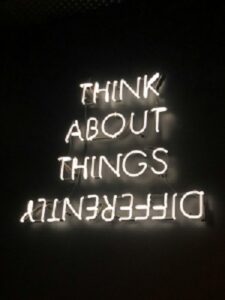
- Should our food production system be based on the need to generate profit over feeding people?
- Should our housing system be focused on market value for our home over housing people?
- Should our healthcare system be focused on treating people for profit over creating a culture of wellness?
- Should our education see a student as a revenue stream accumulating huge amounts of debt?
- Finally, should our financial system be rooted in the accumulation of wealth by using my already accumulated wealth?
We go so far to call things that have social impact non-profit and create a sector of the economy to address those needs where financial resources are scarce! All of these activities beget the need for a new set of assumptions and behaviors, an economic model that places People and Planet before Profit.
What’s the next ISM?
Before answering that question, I want to tell you how I arrived at even thinking about it. After reading Democracy at Work: A Cure For Capitalism (Richard Wolff) I saw some things that are deeply flawed in our current social/political/economic system and how enmeshed we are in them. Let me paint a picture which I will admit is offered from a very western perspective. I think this is acceptable as the western systems are predominate in the world at this time.
 Four hundred years ago we lived in a feudal system, the serfs did most of the work and the aristocrats and king received most of the value. Two hundred years ago we lived in system which allowed slavery, the slaves did most of the work and the masters and aristocrats received most of the value. Today we live in a corporate system, the workers do most of the work and the founders/CXXs and investors receive most of the value. Nothing has changed! In fact if you look at a typical corporate structure you have the CEO (king), the managers (aristocrats) and the workers (serfs). Government bureaucracies follow this same pattern with different titles.
Four hundred years ago we lived in a feudal system, the serfs did most of the work and the aristocrats and king received most of the value. Two hundred years ago we lived in system which allowed slavery, the slaves did most of the work and the masters and aristocrats received most of the value. Today we live in a corporate system, the workers do most of the work and the founders/CXXs and investors receive most of the value. Nothing has changed! In fact if you look at a typical corporate structure you have the CEO (king), the managers (aristocrats) and the workers (serfs). Government bureaucracies follow this same pattern with different titles.
Having this deeper realization I asked this question…if it’s not capitalism, what is it? Often people respond with things like socialism, communism, pick some other ism! I realized I needed to step back and come up with something completely different. At the same time I was listening to many podcasts, reading some amazing authors, that included thinkers like Daniel Schmachtenberger, David Graebar, Nail Ferguson and David Sloan Wilson. As I was listening, one word kept lighting up in my brain over and over…contribution. Suddenly it seemed obvious, what would a system based on contribution look like?
Barbara Marx-Hubbard said
“we are moving from unconscious evolution by natural selection to consciousness evolution by choice.”
Returning to the definition of the economy, being made up from human labor (contribution), natural resources (planet) and a culture, I call the new culture Contributionism!
From Survival to Thrival
Since we are talking about a culture, a framework where people are operating from some individual or shared activity it occurred to me to start with Maslow’s hierarchy of needs. The base of the pyramid is rooted in meeting our Physiological and Safety needs. In our economics I would put things like:
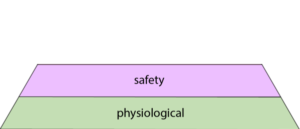
- Food
- Shelter
- Sundries (clothing, toiletries, etc)
- Healthcare
- Protection
There might be more, this is where I’m starting. When I think about them I’ve come to call them the MEconomy…meeting my basic needs. There is plenty of evidence about how humans behave if their basic needs aren’t being met…crime, mental health issues, competition and war. When they are being met it creates the opportunity for us as individuals to thrive and move up the pyramid.
From Competition to Cooperation
Studies show that when there is a scarcity of some resource, human beings are competitive. There can only be one winner of the game, or one leader of the group. When sufficiency exists we actually become cooperative. For example in a company there is a job which comes with some privilege (money, power, etc) we will compete for it, most of us probably have some story to tell. In a company with a more egalitarian structure we support each other in our growth and development, we cooperate. The next levels in Maslow’s pyramid are our needs for Belonging and Love, Esteem and Cognitive. Notice we have shifted to a focus that goes beyond Me to We. It creates the opportunity to align with others in some shared activity from which we all benefit. I would put things like: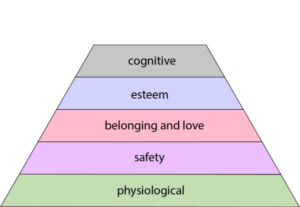
- Community
- Energy
- Transportation
- Communication
- Education
- Natural Resources (The Planet)
I’m sure there are more and this collection of activities is often referred to as the commons. The only woman to ever win the Nobel Prize in Economics, Elinor Ostrom, proposed a solution to what is called the tragedy of the commons. She proposed a set of eight General Design Principles as a solution. Their success has been described in the book Prosocial and expanded to be applied to any shared human activity. I think of these shared activities as the WEconomy.
Creating a More Beautiful World
Charles Eisenstein wrote a book called The More Beautiful World Our Heart’s Know is Possible. Anyone who has read it will be deeply touched by what Charles describes. What I’m hoping to define is a path towards that world. Returning to Maslow’s pyramid we find Aesthetic, Self-Actualization and Transcendence. Now that we have our individual and shared needs met we are actually free to express individual and collective creativity. For this reason I refer to this as the FREEconomy. It includes things like:
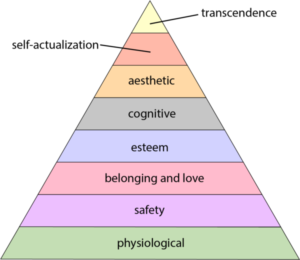
- Personal Development
- Entertainment (art, music, dance, film, etc)
- Research
- Travel
- Dining
Again I’m sure there are other activities in this final group, and my hope is you can relate to these groupings, ME, WE and FREE. I hope this gives us a set of three lenses through which we can view the economy which maps directly onto Maslow’s hierarchy of needs. This framework is Contributionism, starting with People, including the Planet, we are defining a new culture…the next economy.
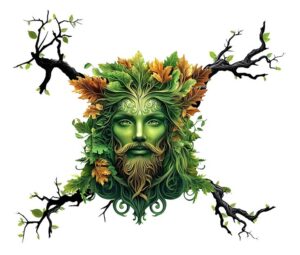 If you’d like to know more about how this is being put into practice, visit our companion website Contributionism.Info for details on:
If you’d like to know more about how this is being put into practice, visit our companion website Contributionism.Info for details on:
- The How
- The Who
- The Community
We all have something to contribute!
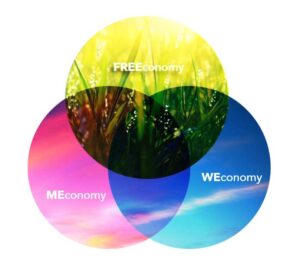 From Money to Current See
From Money to Current See
The most common question I get after presenting this framework, how do we pay for it? It’s a great question and the simple answer is, we do…through our contribution and redefining the flow of value! It just doesn’t look like what we do now or how our current monetary system works. I’ll pick this up in my next blog when I explore value chains and current see (currency).
